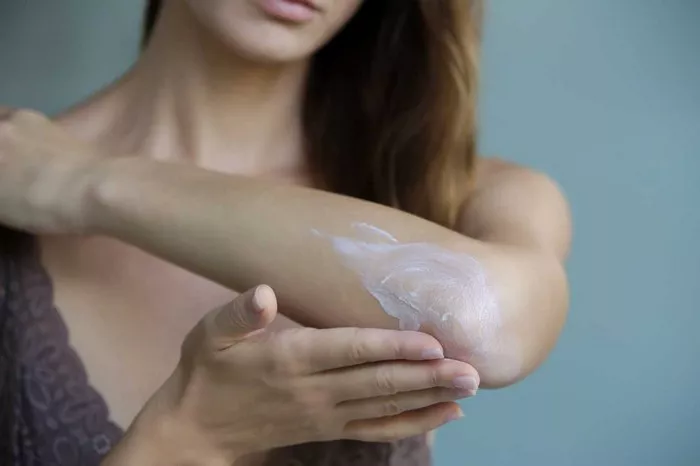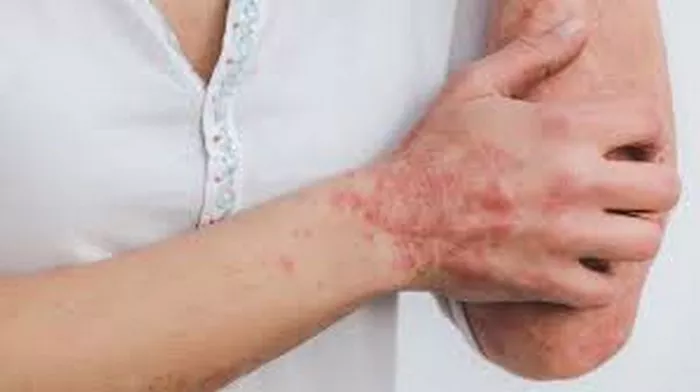Plaque psoriasis, a chronic autoimmune condition characterized by red, raised patches of skin covered with silvery-white scales, affects millions of people worldwide. While there is currently no cure for psoriasis, various treatments can effectively manage its symptoms and improve quality of life. Among these treatments, topical creams play a crucial role in alleviating inflammation, reducing itching, and promoting skin healing. However, with a plethora of options available on the market, choosing the right plaque psoriasis cream can be overwhelming. In this comprehensive guide, we will delve into the types of plaque psoriasis creams, factors to consider when choosing a cream, review top options, discuss expert opinions and research findings, offer additional tips for managing plaque psoriasis, and highlight safety precautions.
Types of Plaque Psoriasis Creams
Understanding the different categories of creams available is essential for tailoring treatment to individual needs. Here’s a brief overview:
1. Topical Corticosteroids: These creams contain corticosteroids, which are potent anti-inflammatory agents that suppress the immune response responsible for psoriasis symptoms. They are available in various strengths, with higher potency formulations typically reserved for thicker plaques or resistant cases.
2. Vitamin D Analogs: Creams containing vitamin D analogs such as calcipotriene work by slowing down the excessive skin cell growth characteristic of psoriasis. They are often used in combination with corticosteroids for enhanced efficacy.
3. Retinoids: Derived from vitamin A, retinoids help normalize skin cell production and reduce inflammation. Tazarotene is a commonly prescribed retinoid for plaque psoriasis, available in cream or gel formulations.
4. Calcineurin Inhibitors: Tacrolimus and pimecrolimus are calcineurin inhibitors that modulate the immune response, making them effective for treating sensitive areas like the face and genitals where corticosteroids may be too harsh.
5. Coal Tar: Coal tar has been used for decades to alleviate psoriasis symptoms due to its anti-inflammatory and anti-itch properties. Coal tar creams are available over-the-counter or as prescription formulations.
Factors to Consider When Choosing a Cream
Several factors should be taken into account when selecting a plaque psoriasis cream:
1. Severity of Psoriasis: The severity and extent of psoriasis plaques influence the choice of cream potency. Mild cases may respond well to over-the-counter options, while moderate to severe cases often require prescription-strength formulations.
2. Skin Type: Consider the sensitivity and thickness of the affected skin when choosing a cream. For instance, thinner skin areas like the face may require milder formulations, while thicker plaques on the elbows or knees may benefit from stronger corticosteroids.
3. Location of Plaques: Certain areas of the body, such as the scalp, genitals, or folds of skin, may require specialized formulations or gentler treatments to avoid irritation.
4. Potential Side Effects: Each type of cream carries its own set of potential side effects, ranging from skin thinning and irritation to photosensitivity and systemic effects. Discuss these risks with a healthcare professional before starting treatment.
5. Personal Preferences: Factors such as convenience of application, odor, texture, and cost may influence treatment adherence and overall satisfaction.
Review of Top Plaque Psoriasis Creams
Let’s take a closer look at several popular and effective plaque psoriasis creams:
1. Topical Corticosteroids:
- Pros: Rapid symptom relief, available in various strengths, suitable for acute flare-ups.
- Cons: Prolonged use may lead to skin thinning, risk of rebound flare-ups upon discontinuation.
- User Reviews: Many users report significant improvement in symptoms with topical corticosteroids, but some experience side effects with long-term use.
2. Vitamin D Analogs:
- Pros: Slows down skin cell proliferation, reduces inflammation, suitable for long-term use.
- Cons: May cause skin irritation or burning sensation, slower onset of action compared to corticosteroids.
- User Reviews: Generally positive, with users noting gradual improvement in plaques over time.
3. Retinoids:
- Pros: Normalizes skin cell growth, reduces inflammation, may improve overall skin texture.
- Cons: Can cause skin irritation, photosensitivity, and initial worsening of symptoms.
- User Reviews: Mixed reviews, with some users experiencing significant improvement and others reporting intolerable side effects.
4. Calcineurin Inhibitors:
- Pros: Safe for use on sensitive areas, reduces inflammation without causing skin thinning.
- Cons: May cause burning or stinging sensation upon application, long-term safety concerns.
- User Reviews: Generally positive, especially for treating facial and genital psoriasis where other treatments may be too harsh.
5. Coal Tar:
- Pros: Relieves itching and inflammation, available over-the-counter, cost-effective.
- Cons: Strong odor, potential for skin irritation and staining of clothing or bedding.
- User Reviews: Mixed experiences, with some users finding relief and others disliking the smell and texture of coal tar creams.
Expert Opinions and Research Findings
According to dermatologists and research studies, combination therapies involving different classes of creams often yield the best results in plaque psoriasis management. For instance, combining corticosteroids with vitamin D analogs or calcineurin inhibitors can enhance efficacy while minimizing side effects. Additionally, regular moisturization and adherence to a skincare routine can help maintain skin barrier function and reduce the frequency of flare-ups.
Research also underscores the importance of addressing underlying factors contributing to psoriasis, such as stress, obesity, smoking, and certain medications. Stress management techniques, dietary modifications, and lifestyle changes may complement topical treatments and improve overall outcomes.
Additional Tips for Managing Plaque Psoriasis
In addition to topical creams, individuals with plaque psoriasis can benefit from the following strategies:
1. Regular Moisturization: Keep the skin hydrated with emollients or moisturizers to reduce dryness and itching.
2. Sun Protection: While controlled sun exposure may improve symptoms, excessive sun exposure can trigger flare-ups. Use sunscreen and protective clothing when outdoors.
3. Healthy Lifestyle: Maintain a balanced diet, engage in regular exercise, avoid smoking, and limit alcohol consumption to support overall health and reduce inflammation.
4. Stress Management: Practice relaxation techniques such as meditation, yoga, or deep breathing exercises to minimize stress, which can exacerbate psoriasis symptoms.
Safety and Precautions
Before starting any new treatment, it’s crucial to consult a healthcare professional, preferably a dermatologist, to discuss the most appropriate options based on individual needs and preferences. Additionally, closely monitor for any signs of skin irritation, allergic reactions, or worsening of symptoms while using plaque psoriasis creams. Discontinue use and seek medical advice if adverse reactions occur.
In conclusion, selecting the best plaque psoriasis cream involves considering factors such as severity of psoriasis, skin type, location of plaques, potential side effects, and personal preferences. By understanding the different types of creams available, reviewing top options, considering expert opinions and research findings, implementing holistic management strategies, and prioritizing safety precautions, individuals can effectively manage their psoriasis symptoms and improve their quality of life.
























